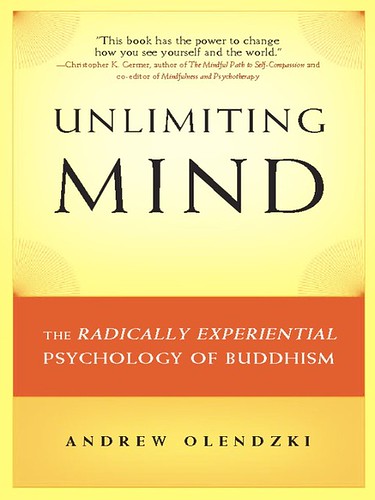 How important is graceful and literate writing when it comes to setting out the dharma? One could say, using the old Keatsian line, that if it rings true, it will probably also engage our aesthetic sensibilities. And if it doesn’t excite us aesthetically, well at least it’s still true. But is that really the case?
How important is graceful and literate writing when it comes to setting out the dharma? One could say, using the old Keatsian line, that if it rings true, it will probably also engage our aesthetic sensibilities. And if it doesn’t excite us aesthetically, well at least it’s still true. But is that really the case?We’ve all heard umpteen talks about the core teachings, but a skilled teacher can render that all too familiar gestalt of the the four ennobling truths (existential malady è diagnosis è cure è life change) as almost primordially fresh and original. Even the most cursory browse through the online talks on Dharma Seed remind us that we are not lacking for gifted speakers in the Vipassana tradition, which makes sense considering the wholly oral nature by which these truths have so long been transmitted.
The same cannot always be said for writing. I’m thinking particularly of a more recent dharma text phenomenon which attempts to straddle numerous mindfulness-buddhist-positive-psychology-self-help fences all at once, whilst producing something on a page that sometimes resembles the experience of being gently wiped down with a warm face cloth whilst standing in a patchouli scented floral-themed bathroom.
Andrew Olendzki is no such a writer. Again and again, one finds oneself reaching for the pencil to score a mark against a sentence or paragraph that manages to be at once lucid, vigorously-argued, and freshly hewn. Here’s just one or two of my many underscorings.
On selfing: "What becomes clear through this analysis of moment-to-moment experience is that grasping is not something done by the self, but rather self is something done by grasping." (p.133)
On delusion: "As the lamp behind the projector, the shimmer within the illusion, or a reflection in a mirror, delusion shines with a softer light and illuminates indirectly. Delusion can be lovely, which is half the problem; and light doesn't always show the truth, which is the other half of the problem." (p.56)
I’m sure there are those who will argue that in some ironically post-modern way, this this may be the philosophical subtext of the whole endeavour. Is not one of the wheel-spinning pinions of dukkha that fact that we all too often attempt to create a cogent, systematic, narratively-integrated object (often a self), out of what is essentially a bunch of fantastically special but unintegrated thoughts, feelings and sensations, arising and passing away moment by moment? In this sense, reading Olendzki almost experientially plays out one of his (and the Buddha’s) main themes: our constant craving and subsequent dissatisfaction with the fact that what is pleasurable and beautifully truthful (in this case, a well-wrought page of prose) must all too soon come to an end.
The two exceptions to this are the introductory essay and the final chapter which examines mindfulness through the perspective of the Abhidhamma. The latter presents a beautifully clear outline of this complex and exhaustive text, showing how mindfulness “extracted from its matrix of wholesome co-arising factors” (i.e. the ethical components of the eightfold path), “degenerates into mere attention”. Looked at in this way, we may be applying our minds, sustaining attention on the breath, perhaps even moved by “determination, joy and a self-less inclination for the well-being of all living creatures”, but still not practising mindfulness.
This feels like an important point to be making in what is increasingly becoming a very secular, ethically-neutral field, where Mindfulness is presented as a discrete “technology”, a psychological tool, rather than a moral philosophy. I almost wish someone at Wisdom Publications had suggested Olendzki start from this premise and work forward, but perhaps this is something he will do in a subsequent volume.

No comments:
Post a Comment